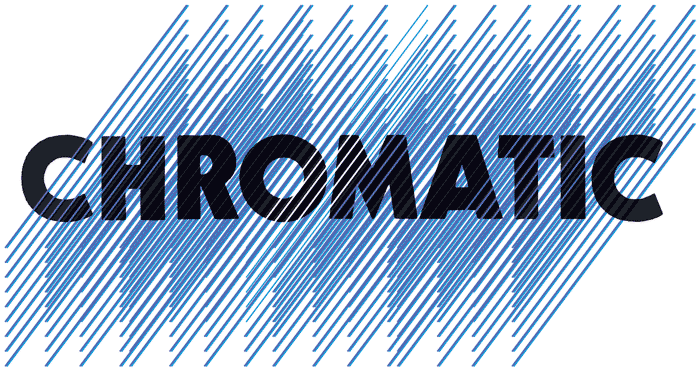PONY
Velveteen out 5/19/23 (Take This To Heart Records)
There’s a long tradition of bands that can compellingly explore the nuances of the human experience within the confines of pop music, that can elegantly consider both the lighter and darker elements of life through a deceptively sunny-sounding three-and-a-half-minute song. On their sophomore full-length album, Velveteen, Toronto’s reigning power pop champions PONY manage the task with both finesse and panache across 10 irresistibly hook-filled tracks–and further cement their place in the genre’s lineage. Influenced by countless hours of self-reflection, literature, television, and insomnia, the record showcases the band’s elevated sound and is their most fully-realized to date–examining the complex relationships between longing, connection, and being true to oneself.
PONY’s genesis can be traced back to 2015, but its current incarnation took shape in 2018 when singer/songwriter/guitarist Sam Bielanski paired with multi-instrumentlist and collaborator Matty Morand while writing their 2021 debut LP, TV Baby (Take This To Heart Records). In the strange and unprecedented isolation of the two or so years following that record’s creation and release, the pair made the best of it by challenging themselves to write a new song each week. The end result of that effort was over 200 songs and the finely honed songwriting chops that are on full display throughout Velveteen.
For Bielanski, this time around writing Velveteen included a nine-month struggle with insomnia, during which they reached for the nightly balm of an audiobook of The Velveteen Rabbit. The classic tale resonated so deeply with them that it ended up inspiring the album’s title and influencing the themes that run through it–feelings of existential dread or worthlessness, as well as self-acceptance and vulnerability. “I became obsessed with it but I always fell asleep before getting to the end. The way I interpreted the story was that it's the love that we give and receive that makes us real or whole,” they explain. “The one chapter I found especially heart wrenching is when the velveteen rabbit is trying to hang with the real rabbits of the forest, and through comparison, he realizes he isn’t as real as he thought he was. It was a good lesson for me, even now, because I'm constantly fighting the urge to compare myself to others. Your individual experiences make you who you are and nothing can change that. That's what I thought, until I finally listened to the whole thing and found out that at the end of the book, a fairy turns the velveteen rabbit into an actual rabbit, which I felt undermined the earlier lessons of the story. After that, I was really confused.”
Velveteen emerged through this combination of seclusion, introspection, entertainment deep-dives, and the sleep-deprived osmosis of a children’s story. Bielanski, due to a bad neighbor’s demands for quiet, was forced to record many of the album’s demos into their iPhone while tucked away in a closet (which happens to also double as a vocal booth for their voice work, aptly, as Jazz Hooves on the current generation of My Little Pony). “I wrote the songs on this record differently than the last because we were stuck at home all together and I didn’t want to annoy anyone,” they explain. “So I would often make full instrumental songs on my phone and then add vocals last, which is pretty much the opposite of how I wrote the songs on TV Baby.”
Despite the isolationist nature of this process, they double down on the importance of connection and collaboration when reflecting on Velveteen’s creation. “Once I was happy with the songs, Matty would add their contributions until we felt the songs were nearly done,” Bielanski says. “It was amazing to see how much the songs would change every time a new person was added into the mix. It wasn’t until we recorded them in the studio with [recording engineer] Alex Gamble that the songs truly came to life for me.” Morand adds, “When we recorded TV Baby I went into the studio thinking I was the bass player, and then our guitar player quit and I ended up writing and recording the lead parts in the studio. When it came time to make Velveteen, I wanted to really spend time with the songs and be meticulous. I think Sam writes such great vocal melodies and I’m always afraid to step on them, so I spend a lot of my time picking out the spots that I think can benefit from more guitar and leave out anything I think is unnecessary. I never want to do any more than the song needs.”
Velveteen is musically scaffolded by a hyper-catchy concoction of ‘90s college rock, its more radio-friendly contemporaries, and early ‘00s alternative that manages to reference 30+ years of guitar music–while never being at odds with itself. Blending thoughtful themes with pitch perfect hooks, PONY fuses the sheen of Third Eye Blind, the anthemic pomp of Weezer, and the unguarded vulnerability of Rilo Kiley into a formula that feels as effortless as it does fresh; it’s an adept yet unsurprising skill for a band who mention disparate elements like The Cure, J. Mascis, Spin Doctors, Johnny Marr, Hole, Backstreet Boys, Turnstile, John Frusciante, Angel Olsen, and The Beatles–as well as books like Sarah Jackson’s A Bit Much and TV shows like The Sopranos–as musical and cultural reference points when discussing Velveteen’s songs.
Velveteen opens firing on all cylinders with the instantly memorable “Très Jolie.” A hook-filled confection that Bielanski describes as chronicling “the conflicting emotions of falling in love with someone when you don’t quite love yourself yet,” the song’s lyrical vulnerability is mirrored in the muted verses that bloom into a soaring chorus. It’s followed by the one-two punch of “Peach,” a sugary spoonful of pure pop that looks at how love can turn conditional and sour, and “Sick,” a polished alt-rock lament about losing oneself in relationships. The moodier “Sucker Punch” deftly layers chiming guitar leads alongside a singsong chorus, while the dance-y, wistful “French Class” captures the ache of a new crush. Led by a woozy farfisa line and featuring a cascading, layered chorus, closer “Haircut” relates how one’s sense of self can blur and change as you grow, compounding the confusing uncertainties of adulthood.
Bielanski’s read of a stuffed rabbit’s quest for self-acceptance is the beating heart that gives Velveteen life. The album’s consideration of love, finding a feeling of belonging, and the pursuit for authenticity is woven throughout. “I’ve learned that we become our most authentic selves when we allow ourselves to be open and deeply affected by someone else,” explains Bielanski. “A lot of the songs on TV Baby were about finding the power in being alone. Since then I have done a lot of growing and realized that isolating oneself from others doesn’t serve you in the pursuit of happiness. Showing the love that we have for others is what matters.” And with this open-hearted, reflective, and effusive album, there’s no question that PONY is definitively real.








